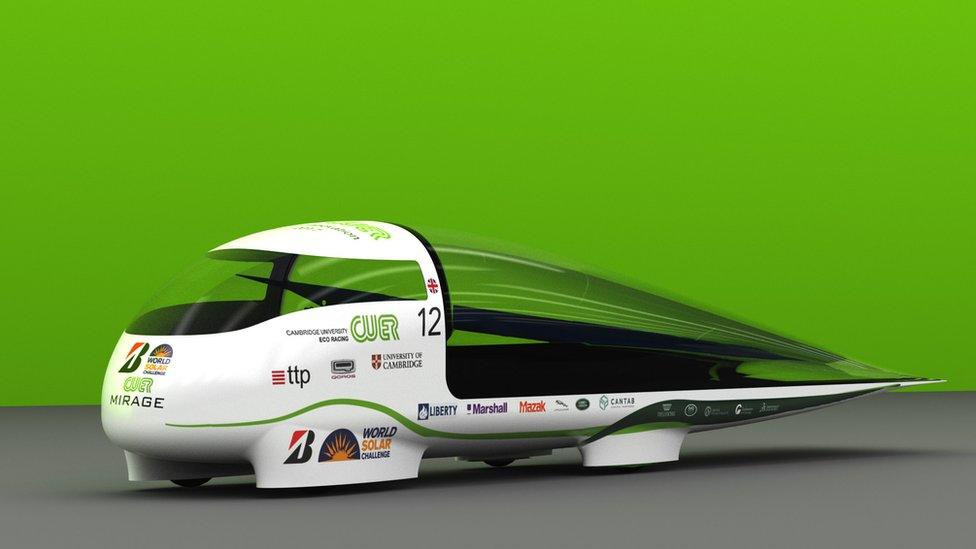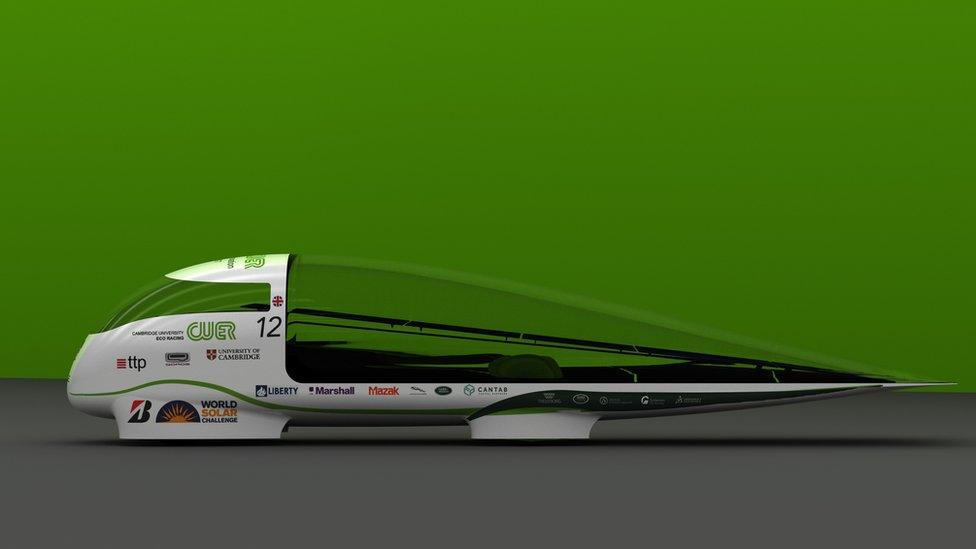University of Cambridge solar car crashes before race
- Published

The team's Mirage car was set to take part in the week-long World Solar Car Challenge
A British solar car racing team has pulled out of a competition after the car that took two years to build crashed into a barrier during testing.
The Cambridge University Eco-Racing team's solar-powered Mirage car rolled after suffering "a sudden loss of dynamic stability" in Australia ahead of the World Solar Challenge.
The damage was "irreparable".
The safety compartment protected the driver, who has left hospital after "minor abrasions and fractures".
A statement read: "Unfortunately, the nature of the incident provided evidence that the car was unstable in certain conditions.
"Our continued analysis of the vehicle aims to understand the cause of the instability."
'A rare opportunity'

The Cambridge University Eco-Racing team now hopes to race in the 2019 World Solar Challenge
Many of the team will remain in Australia to learn and help other teams.
"Being part of such a large solar community in Australia is a rare opportunity and the support and encouragement the team are receiving is phenomenal," a team statement read.
The crash happened in Alice Springs as the team was making its final preparations for the 3,000km (1,864 mile) race from Darwin to Adelaide, which begins on Sunday.
A University of Cambridge team has been building solar vehicles since 2007, when they created the UK's first road-legal solar car, Affinity.
Their most recent development, Mirage, is a 5m (16ft) long carbon-fibre vehicle, which uses solar cells as its power source.
Although the value of the car is unknown, similar cars have been valued at about £500,000.
The race takes in what the team calls "some of the most remote, inhospitable and striking terrain in the whole of Australia" and as such the car needed to undergo rigorous testing.
The test had been undertaken a number of times previously but "on this test occasion, a sudden loss of dynamic stability occurred and subsequently the car rolled and impacted a permanent barrier, causing irreparable damage".